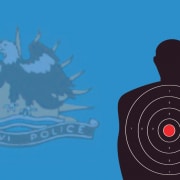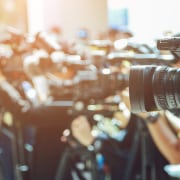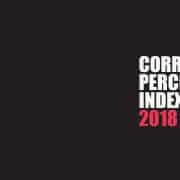|
Getting your Trinity Audio player ready...
|
Today, 3 May, is World Press Freedom Day, when the struggles and hostility faced by many whistle-blowers and journalists, especially in countries where freedom of speech and freedom of the press is restricted, is commemorated. This year’s event goes by the theme of Information as a Public Good.
World Press Freedom Day was proclaimed by the UN General Assembly in December 1993, following the recommendation of a declaration that was developed at a UNESCO seminar held in Windhoek, Namibia, from 29 April to 3 May 1991. The seminar’s theme was Promoting an Independent and Pluralistic African Press, and it gave rise to the Windhoek Declaration for the Development of a Free, Independent and Pluralistic Press, or simply the Windhoek Declaration. We thus celebrate the document’s 30th anniversary this year.
The Declaration was adopted on 3 May, which has consequently been marked as World Press Freedom Day. As an important human rights instrument, the document has been influential in shaping the international community’s commitment to freedom of the press. Those rights are the rights of us all, to speak freely and expose wrongdoing without fear or favour.
“Anyone who works in the anti-corruption space can tell you that whistle-blowers are the most valuable currency for successful investigations. It is their courage and will to expose what is wrong that makes all such investigations worthwhile,” said Corruption Watch senior journalist Moepeng Talane. “Some face retribution that most would find daunting, where their health, safety, livelihoods and even lives come under threat, but they carry on regardless.”
In South Africa at this time we think particularly of the work of the state capture commission, or Zondo commission as it is familiarly known. While the work of the commission’s dedicated staff is commendable from top to bottom, they have been admirably assisted by the media and the providers of the information they have spent all these months scrutinising.
Many whistle-blowers who speak to the media or appear before platforms such as the state capture commission, said Talane – who has attended the commission’s hearings since day one – do so with the belief that South Africa needs a rebirth out of the stranglehold corruption has had on its potential. “They see the impact on the poor who are robbed by corruption and want a change for them, putting their own comfort on the line in the process.”
On the other hand, she added, the reality is that the issue of their protection remains a hard one, despite an impressive legislative framework that covers all the bases. On the ground, however, whistle-blowers rely on the integrity of their case investigators to fight for this protection, and win.
The Zondo commission has, regrettably, been notable not only for the sensational disclosures that have regularly emerged for over two years, but also for the disdain and verbal attacks directed at it and the whistle-blowers who have come forward. From the early days of Vytjie Mentor and Mcebisi Jonas and representatives of the big banks, to executives at state-owned enterprises and private service providers, whistle-blowers have been described as “emotionally unhinged” and “disgruntled opportunists”. The identities of some who asked to remain anonymous have been deliberately exposed, while legal professionals have been subjected to scorn and insinuation.
The most vehement attacks on the commission itself have come from a man who once took an oath to “be faithful to the Republic of South Africa, and … obey, observe, uphold and maintain the Constitution and all other law of the Republic”.
Former president Jacob Zuma stated that coming before the commission would be akin to entering “a slaughterhouse”. His defiance of summonses and Constitutional Court orders instructing him to appear amounts to nothing less than a renunciation of the rule of law.
“On a positive note,” commented Talane, “journalists have played a remarkable role in helping us put pieces of the corruption puzzle together. On several occasions over its over two-year course, the state capture commission has hailed the media for its assistance in placing issues under investigation into context, thus closing the loop on events and transactions of the commission’s interest.”
President Cyril Ramaphosa in his closing remarks during his appearance before the commission, made special mention of the media too, recognising this role and its significance.
Were it not for the commitment shown by all those mentioned and others across the globe, whose lives in some cases have been threatened, whose identities in other cases have been compromised, and whose reputations in still others have been maliciously smeared, corruption would remain far more secretive than it is now and the war against it would be that much harder.
This is the essence of information as a public good.








